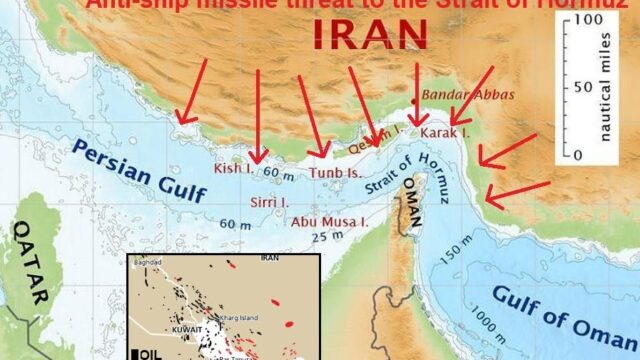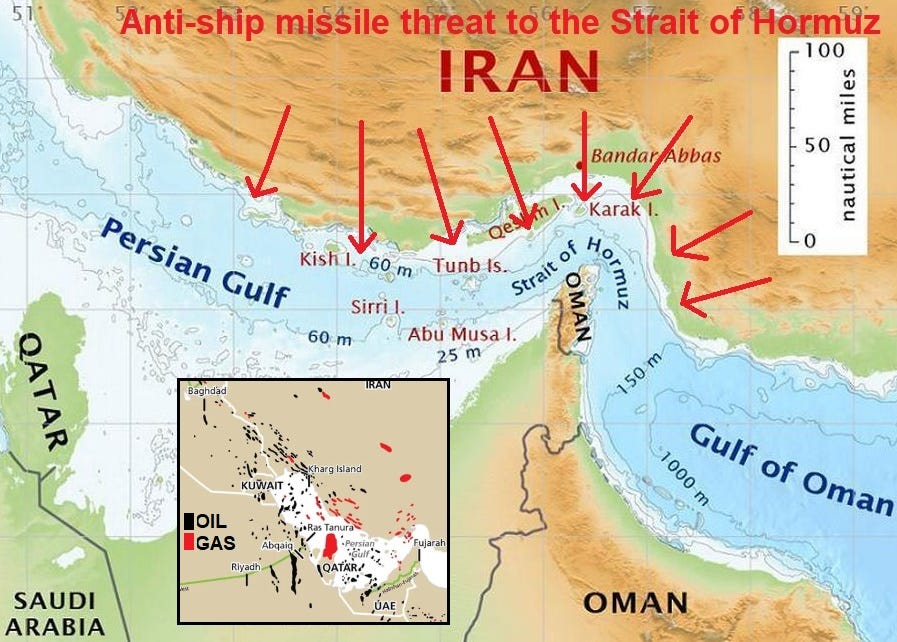Lessons in Humility?

Many prattling about the Rule of Law and Our Sacred Constitution these many years have no problem with President Trump usurping Congress’s constitutionally specified “. . . Power to lay and collect Taxes, Duties, Imposts and Excises, . . .” (Article I, Section 8) by issuing his Liberation Day decree setting dramatically higher tariffs. This was based on a negative balance of trade since 1976, for which no other president from Carter to Biden saw fit to declare an emergency and end run the Constitution.
Fortunately, Trump’s state of emergency lasted less than a week; or it’s being held in abeyance for 90 days; or it will be declared and undeclared on even and odd days of the month. Trump sold his decree as a long-term plan that would make American manufacturing great again. There would be some pain, but it would be worth it. Those who cited history (particularly Smoot-Hawley and the Great Depression) and the well-established economic case against tariffs were either ignored, pilloried, or assured by the Trump faithful that he was again playing 4D chess; the announcement was just a negotiating tactic.
It’s a curious negotiating tactic that’s abandoned within a week after it’s announced. If the short-term tactic has been abandoned, has the long-term plan been as well? Who knows, there’s never a dull, or straightforward, moment with the Donald.
Tariffs remain dramatically increased for China, which has responded in kind. The escalation will hurt both nations, but it will hurt China less. Its exports to the U.S. are 2.3 percent of its GDP; significant, but a total loss wouldn’t destroy its production- and export-led economy. Much if not all of that 2.3 percent will go elsewhere. China has halted exports to the U.S. of various rare earth minerals, for which it is often U.S. industry’s sole source. They are essential for producing many high tech products. Development of alternative sources in the U.S. would take several years.
The Chinese have grown increasingly wary of unpredictable U.S. policymakers, and, playing the long game, have been making moves to protect themselves. The Belt and Road Initiative is in part an effort by China to develop new export markets. Financially, China has transitioned to non-dollar payments as much as possible and has been gradually shedding U.S. treasury debt. They still have enough to overwhelm financial markets and propel U.S. interest rates higher if they decide to shed it all at once.
It remains to be seen how substantially higher prices or the absence of some Chinese imports will affect American consumers, commerce, and industry. It’s going to hurt, although no one wants to admit it. Trump has already sort of admitted it by exempting certain electronics from his reciprocal (but not his fentanyl) tariffs. We’ll see more adjustments, course reversals, and intellectual triple back-flips from Trump, his administration, and his fans explaining how all this is good for us. As for the Chinese, Xi Jinping hasn’t mentioned Trump since April 2.
Trump F***ed Around and Found Out. In the end, it wasn’t the concessions (or in the case of China, the retaliation) from foreign nations, nor the well-founded criticisms, nor even the precipitous drop in equity markets that prompted Trump’s about face. Rather, it was the true source of most of the U.S.’s economic problems—debt—or more precisely, the market for debt, the bond market.
Bonds were dumped, which means interest rates went up. Giant hedge funds employ massive leverage (borrowed money) with which they buy treasury debt to pick up a few basis-point differential (a basis point is 1/100th of a percentage point) between what they pay to borrow and the what they receive on the debt. When it works it’s called a “basis trade.” When it doesn’t work, it’s called picking up pennies before an oncoming steam roller. It backfired bigly after the initial tariff announcement. The price of what the hedge funds were long went down and the price of what they were short went up.
Trump admitted the bond market’s ructions had an impact.
“I was watching the bond market. The bond market is very tricky. I was watching it. But if you look at it now, it’s… it’s beautiful,” he said. “But, yeah, I saw last night where people were getting a little queasy.”
“Trump admits he reacted to stock market plunge,” RT, 4/9/25
“A little queasy” is an understatement for the realization that the U.S. government can’t afford higher interest rates and a bond market blowup would bring down international financial markets. Basis trade fiascos, not always centered on the bond market, elicit concerted government and central bank responses.
Long Term Capital Management’s failure in 1998 was the first. It prompted a $3.6 billion Federal Reserve bailout. There have been other blowups since, and the price tag has grown each time. Zero Hedge, which tracks various basis trades, estimates that it will take close to $2 trillion to staunch the current one if it reaches full florescence. It’s not clear that the rescue would be successful; the can may have been kicked as far as it can be kicked.
Markets are more powerful than bureaucrats and politicians, even presidents. Trump lost to reality, which is always going to be his and every other ruler’s greatest nemesis (see “Trump Versus Reality,” Parts One and Two, SLL, 12/18 and 12/21/24).
Trump knows that dramatic change is necessary, but tariffs are the wrong solution for the wrong problem. The debt-based global economy is a house of cards that will collapse. If Trump is in office when it happens, he will be blamed regardless of what he does or doesn’t do. He can perhaps delay but not prevent collapse by extending his 90-day pause forever and negotiating an end to the trade war with China.
He has the smarts to fold a losing hand, but does he have the humility and wisdom? The world can survive financial and economic collapse. It probably can’t survive a third world war, and here it is not merely desirable that Trump rein in his ego; it’s imperative.
No president likes to withdraw from a losing war. Biden’s withdrawal from Afghanistan was a disgraceful fiasco. Perhaps Trump can get the U.S. out of Ukraine with more grace, but withdraw he must. Intransigent Vladimir Putin holds all the cards. For Russia, the war is existential; for the U.S., it’s a money pit that affects no legitimate U.S. interest. Putin has rejected every U.S. proposal, which amount to bad-faith efforts to win back what’s been lost on the battlefield..
Trump should accede to Putin’s essential conditions—which haven’t changed since he launched the war—and call it a day. If Europe’s clown posse wants to continue propping up Zelensky and his lost cause, they can do so without U.S. support. They’ll soon find that their cause is even more lost.
Humility and wisdom, plus courage, are going to be required in abundance for Trump to extricate himself from the situation he’s in danger of creating in the Middle East. If Trump believes his own rhetoric about bombing Iran into giving up its peaceful (as confirmed by both U.S. and Israeli intelligence) nuclear program and its ballistic missiles, he’s not within field-goal range of reality.
Reality recognition would start with a map of Iran. To its north is the Caspian Sea, and across that body of water is its good friend Russia. Northern Iran is rugged mountains—similar but not quite as high as those in Afghanistan with which the U.S. military had so much trouble.
To Iran’s west lies the Persian Gulf. At the southern tip of the gulf is the Strait of Hormuz, through which approximately 21 percent of the world’s oil is shipped, including 80 to 90 percent of Japan’s, 70 to 80 percent of South Korea’s, and 40 to 50 percent of China’s.

In the event of a kinetic war against Iran, all petroleum tankers will be blocked from leaving the Persian Gulf, not only Iranian ships. Iran has hundreds of mobile truck-mounted anti-ship cruise missiles hidden in rugged mountainous terrain on a wide arc north of Oman and controlling the Strait of Hormuz. This arc is 300 miles wide and 100 miles deep. Iranian missile forces may well act under standing orders to attack all shipping once an American attack on Iran begins. Even a total decapitation strike against Iranian communications will not prevent these standing orders from being carried out. Iran will be determined to share their pain across the region and around the world.
“If we go to war against Iran, the world economy will crash,” Matthew Bracken, April 9, 2025
The U.S. and Israel will try to take out Iran’s nuclear and missile facilities from the air. Last year’s dust up between Iran and Israel revealed Iran’s top-notch air defense systems and missiles that penetrated Israel’s air defenses (“Why Israel’s Attack on Iran Was a Bust,” Mike Whitney, 11/5/24). The U.S. and Israel have had limited success with Yemen’s Houthis and their Iranian-supplied missiles and drones in the Red Sea.
Bracken makes a convincing case that it would take a ground-based invasion to stop Iran from bottling up the Persian gulf. The U.S. and Israel haven’t been able to drive two million Palestinians from Gaza; Iran has 80 million people. An invasion would be two fools’ errand, and the price of oil would skyrocket into triple-digits, perhaps $200 per barrel. That would be a boon for U.S. oil producers but a catastrophe for consumers. For countries and regions not self-sufficient in oil—Japan, South Korea, China, and the EU, it would be an unmitigated disaster and would spark a global depression
Russia is a self-sufficient oil exporter and could make up most of China’s shortfall. Iran is a central node of their Belt and Road Initiative, and that is the least of the countermeasures they would take against the U.S. and Israel. The world war three handwriting is on the wall.
To erase it, Trump will have to stiff his Jewish mega-donors and Netanyahu, who are counting on U.S. participation in their long-held dream of war with Iran. Trump has been revoltingly slavish, but the annals, Politicians Screwing Their Benefactors, has many volumes. Perhaps the screwing has begun. U.S. and Iranian delegations had “indirect,” limited talks recently that could be the beginning of negotiations. We can only hope.
John F. Kennedy was the last president who openly challenged Israel. He was adamantly opposed to its nuclear program. Israel and Mossad may have had something to do with his assassination; Johnson was rabidly pro-Israel, and the Israelis got their nukes. To even acknowledge those suspicions while dismissing them has been career suicide in the mainstream media for 62 years. A bit of daylight is starting to peek through in the alternative media, thanks in part to Candace Owens.
Trump could be playing for the ultimate stakes if he maneuvers the U.S. away from attacking Iran. He is smarter than his many, often contradictory public utterances sometimes indicate, but few would call him either wise or humble. Trump has upset Corruptocracy apple carts and survived at least two assassination attempts, the first of which has iconically defined him. Now, in addition to wisdom and humility, he has to summon the courage to prevent world war three.
The world is changing and the American empire is going the way of every other empire. The fate of America and perhaps even the world will turn on whether or not Trump, the Deep State, and the American people recognize reality, and whether it happens before or after cataclysmic catastrophe.
https://straightlinelogic.com/2025/04/18/lessons-in-humility-by-robert-gore/
